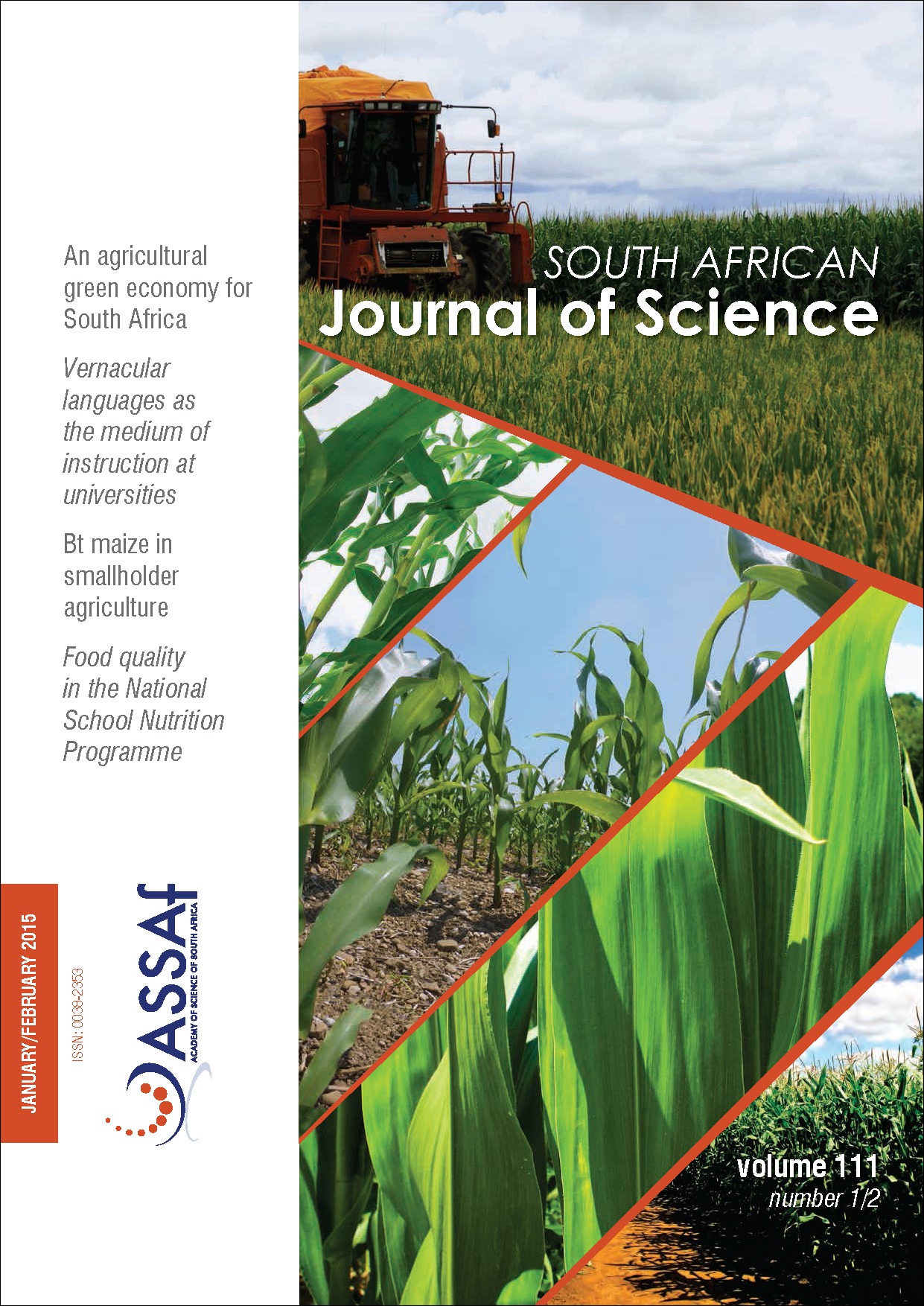Assessing the quality of food served under a South African school feeding scheme: A nutritional analysis
DOI:
https://doi.org/10.17159/sajs.2015/20140044Keywords:
National School Nutrition Programme, malnutrition, nutrients, chemical analysis, nutrient-based standardsAbstract
School feeding schemes have been implemented in various schools across the globe to improve the nutritional welfare of learners. The purpose of this study was to identify possible nutritional benefits or deficiencies of the foodstuffs served in the South African National School Nutrition Programme in the Free State Province (South Africa). Representative meal samples were collected from randomly selected schools and the nutrient content of meals was determined. The results were measured against nutrient-based standards for an average school lunch for individuals aged 7–10 and 11–18 years. The meals did not meet the nutrient standards for carbohydrate and energy contents for either age group. Protein standards were met by 90% of meals for individuals aged 7–10 years and by 40% for those aged 11–18 years. Only 10% of meals met the standards for calcium and zinc, while 80% and 30% met the iron standards for those aged 7–10 years and 11–18 years, respectively. The lipid and vitamin C contents were within standards. The implementation of proper storage and food preparation procedures may assist in preserving the quality of nutrients.
Published
Issue
Section
License

All articles are published under a Creative Commons Attribution 4.0 International Licence
Copyright is retained by the authors. Readers are welcome to reproduce, share and adapt the content without permission provided the source is attributed.
Disclaimer: The publisher and editors accept no responsibility for statements made by the authors
How to Cite
- Abstract 625
- PDF 608
- EPUB 207
- XML 259












.png)